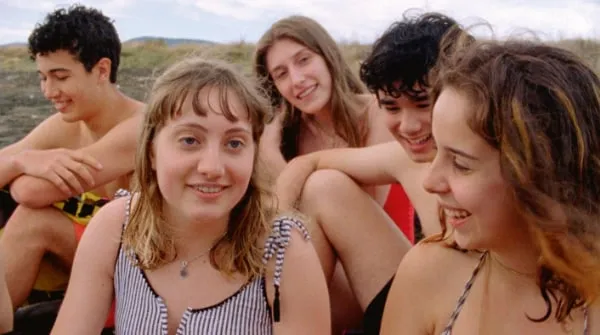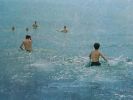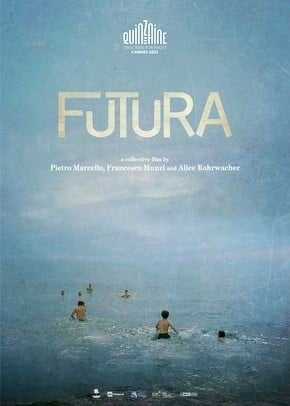Eye For Film >> Movies >> Futura (2021) Film Review
Futura
Reviewed by: Anne-Katrin Titze

“What is ‘young people’?” Alice Rohrwacher asks at the start of Futura. Is it a sort of “supernatural being” that can tell us what lies ahead? The documentary (a highlight in the Main Slate programme of the 59th New York Film Festival), co-directed by Pietro Marcello, Francesco Munzi, and Rohrwacher, probes into the state of mind of young people between 15 and 20 years old in Italy at the beginning of this century’s Twenties. What are their hopes? How do they see the world? Wishes and dreams are serious political issues and Futura, which shows a variety of social and geographical spheres, does not come up with a neatly packaged analysis, but a wide array of concerns.
We want to visit them again, as we were allowed to in the late great Michael Apted’s Up series. The horseback-riding girls in the mountains, who are happy with the status quo and suggest that not causing any trouble is the best way forward - where will they be? Or the refugee boys in the juvenile shelter in Liguria, who make the most provocative suggestion of a world without money? Will they seem revolutionary or naïve in a few years? Will the young people in Genoa even do a search about what happened in their city, their school, 20 years ago during the G8 Forum? Will the three beautician school students who have such different looks stay friends?

Travel, leaving Italy, more soccer fields, ape cars are on their minds. “If you never experience life outside Italy, you can’t change Italy,” says a young man in Rome. Rohrwacher, whose questions are terrific, wants to know if their future is individualistic or collective, better or worse than what their parents imagined? A group of Romani youth answer in an unexpected direction. Do you have books in your home? Can you recite a poem?
Covid-19 hits in the middle of this film and we suddenly see masks at the hotel school’s kitchen. Time itself has changed during the pandemic, and when we return to some of the subjects, it already feels as though seven years had passed, not merely a few months. “Eat, sleep, study” and no more travel, as one girl puts it, is the new routine. We hear that pointed fear, “which used to be a good thing” had turned into permanent anxiety, which isn’t productive anymore. The reflections and insights are many - feeling free versus “nobody really cares,” technology as a plague, and how social media has made young people downtrodden. Giving a good life to his mother is on one youth’s mind.
The fact that people don’t care about their neighbors anymore emerges as a theme. At a school in Venice, they discuss the future being at risk due to the lack of tourism, as well as the privilege of living on the water. Pisa looks beautiful in the rain and the students being interviewed show as much as they tell: a girl doesn’t get a word in, as two guys cut her off. A choir sings songs of ancient times and a young rapper shares his latest creation. With panic attacks and depression rising, where do we go now? What next?
At the end, a little girl, who happens to look like me at that age, is running in the snow. She is younger than everyone interviewed. She is the future’s future. There is a road with cars in the distance. An adult runs after her. She stops and runs off again, on the loose forever. The epilogue contains a quote from Belgian writer Raoul Vaneigem, providing the secret to autonomy.
Reviewed on: 27 Sep 2021

















